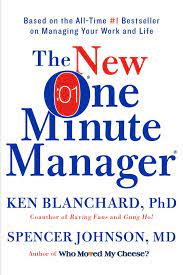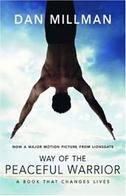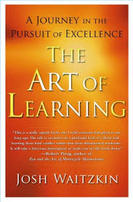 A fellow Xoogler recommended to me the book Solve for Happy: Engineer Your Path to Joy by Mo Gawdat. I just finished it and thoroughly enjoyed it. While the last chapter on "intelligent design" may seem the most controversial, the rest of the book is grounded on (much less controversial) science and simple practical tools for happiness. The book covers mental biases, getting over fears, using meditation, and presents many other techniques and ideas that can help bring peace and happiness to everyday life. I identified a lot with the author as he is an engineer and Xoogler. The story of the loss of his son and the many associated anecdotes related to that were gut-wrenching; it's amazing that someone who has lived through that can write a book to help others be happy. There are so many good lessons in this book, and I highly recommend it. My main notes and takeaways are below.
0 Comments
 I just finished reading Way of the Peaceful Warrior by Dan Millman. I had it on my reading list for a while, and several people recommended it to me. The book definitely was inspirational, and I liked many of its Zen-like lessons, such as about paying attention to life, being happy for no reason, and appreciating each moment you have. It also demonstrated the hard work it takes to make real change in life and the value of good teachers. The book reminded me a lot of Zen and the Art of Motorcycle Maintenance; the fact that the teacher was a gas station attendant and car mechanic must have been an implicit nod to the Motorcycle inspirations. What I didn't like were the several totally magical/fantastical/shamanistic elements; if these were brought down to earth and reality and explained as simple visualizations rather than as special powers of the teacher, I think it would have made the book lose less of its seriousness and value. Overall though, I did enjoy it and got many good ideas, inspirations, and butt kicks out of it, so it was all good.  I recently finished reading The Art of Learning by Josh Waitzkin, and I can easily say it's one of the best books I've read this year so far. It hit home on so many levels, and I enjoyed seeing so many parallels between it and other books I've been reading recently. I heard about it through Tim Ferriss's podcast, where Tim interviewed Josh about his experiences in the worlds of chess and Tai Chi. The chess side was somewhat familiar to me, as I took some chess lessons growing up but never got into it too seriously. The Tai Chi stuff was all new, but I did have some familiarity with the meditative aspects. I was very impressed by Josh's clarity of writing and how he was able to distill his experiences into very useful, concrete lessons and techniques, all the while telling a story filled with graphic images and gripping plot lines. It was a neat mix between stories of his own life and deep philosophical musings. The book touched on so many interrelated subjects: meditation, exercise, interval training, chess training, Tai Chi principles, psychology, cognitive biases, and strategy of war, among others. I took a ton of notes (below) and aim to try out many of his ideas, like journaling and paying attention to what sparks creativity in me and finding ways to trigger that myself. In addition, I want to develop a similar focus on quality as he discusses it. The way Josh goes from field to field and becomes a world-class expert and aims to actually push each art forward resonated a lot with me, as I too find myself having many interests and wanting to master them. However, Josh has been able to go extremely deep into a couple fields, whereas I find myself having gone only somewhat deep (like to the level of basic competency) in a whole bunch of fields (jack of all trades, master of none). It's time for me to work on mastery instead. In some ways I pride myself on my ability to learn the basics of many disparate things very quickly and adapt, but in other ways I feel like a disappointment as I haven't gone so deep into any one field. Some of the fields I'm into for work, like computers, finance, and entrepreneurship, I've excelled at but certainly haven't become "world class," and I can say the same thing about my hobbies, like magic (attained above average competency but nothing extraordinary). I think that a big challenge for me in implementing Josh's suggestions for how to go deep will be identifying which are the exact fields/hobbies/interests to go deep into. Josh seems so much more in tune with his inner truth and calling, and that's something I want to find for myself as well in order to give me the clarity and motivation necessary to really delve deep into one thing. |
Archives
June 2024
Categories
All
Subscribe |
 RSS Feed
RSS Feed
